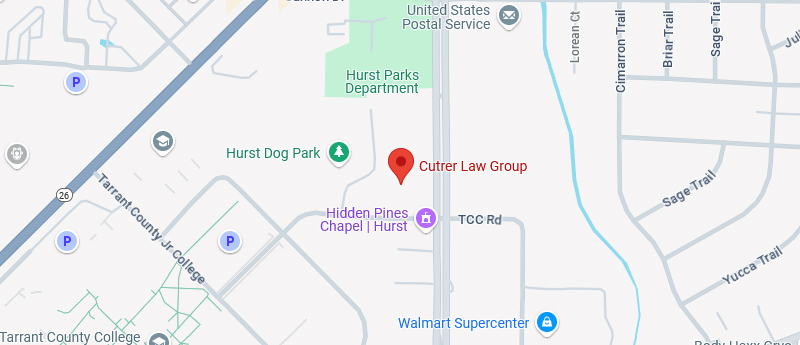When Planning Ahead Doesn’t Go as Expected
Estate planning is a critical step in asset protection and safeguarding one’s own legacy. Writing a will might be the most important part of this process. A valid will can avoid legal disputes after a person dies and ensure their assets go where they choose. However, it’s not always this easy – which is why it’s important to understand how will contests are handled in probate court.
The unfortunate reality is that even creating a will doesn’t guarantee that issues won’t arise after a person’s death. Any “interested party” can challenge the validity of the will, and these disputes are handled in probate court as part of the probate process. Regardless of which side of a will dispute you find yourself on, understanding the issues involved is absolutely critical.
Who Can Contest a Will in Probate?
To fully understand how will contests are handled in probate court, it’s first necessary to recognize who can raise such a challenge. The rules around this issue can vary by jurisdiction, but in Texas, the law states that only interested parties can contest a will. This doesn’t mean anyone who is interested in the outcome. Rather, interested parties include:
- Beneficiaries named in the will
- Heirs under Texas intestacy laws who would inherit if the will were invalid
- Creditors with claims against the estate
Creditors file claims based on what they claim the decedent owes them. However, beneficiaries and potential heirs typically file challenges because they don’t believe the will is fair. Still, feelings of unfairness are not enough to support a will contest on their own. There are specific grounds for contesting a will in probate court that the challenger must prove.
What Are the Grounds for Contesting a Will in Probate?
If someone qualifies as an interested party, they can file a challenge against a will in probate. However, this challenge will not go anywhere if sufficient grounds do not exist for such a challenge. These grounds relate to estate planning law, and if the rules for writing a will are not followed exactly, it can open the door to contests in probate court.
If any of the following situations exist, there’s a very real possibility that an interested party could successfully challenge a will:
Lack of Testamentary Capacity
The person making a will (i.e., the testator) must be of sound mind when doing so. A will can be contested if the testator didn’t understand that they were creating a will, didn’t comprehend who their heirs were, or didn’t understand the nature of their assets.
Undue Influence
Wills made under undue influence are often successfully contested. It’s inappropriate for anyone to exert excessive pressure on the testator to create or change a will in their favor. Signs of undue influence might include isolation of the testator, a will that significantly benefits one beneficiary at the expense of others, or testator vulnerability (e.g., illness, age, dependency)
Fraud or Forgery
Probate courts can invalidate a will if there’s evidence that the document was signed under false pretenses. Invalidation may also occur if the signature or the document itself were forged.
Improper Execution
Every jurisdiction has specific rules regarding how a will must be executed. For instance, Texas requires that wills be in writing, signed by the testator or someone under the testator’s direction, and be attested by two credible witnesses over the age of 14.
Revocation
If a newer will exists or the testator explicitly revoked the will in question, the probate court may decide that it is no longer valid.
The Process of Contesting a Will in Probate Court
If an interested party meets the legal requirements for contesting a will in probate court, they must follow the legal process for challenging the document. Submitting the appropriate paperwork can be a bit complicated due to complex legal language and a need to understand certain statutory requirements.
However, understanding how to file a will contest petition in probate court is far from the biggest hurdle that interested parties will encounter. The entire process includes the following:
- File the challenge: The petition to contest the will needs to be filed in the probate court where the will was submitted
- Burden of proof: The submitter of the will is initially responsible for proving validity, but when a contest is filed, the challenger must prove it invalid
- Gathering evidence: Both sides will be allowed to present evidence to the probate court. This includes witness and expert testimony, medical records, and communications
- Meditation: Judges often urge parties to engage in mediation to reach a resolution without the court’s involvement
- Trial: If mediation is not appropriate or successful, the contest goes to trial. A judge will rule on the merits of the challenge
Will contests in probate court are typically unsuccessful, but successful challenges do occur. It’s impossible to predict whether such a challenge will work without knowing all the facts of the case. In many instances, all the parties involved may not even be immediately aware of the evidence available. It’s also possible for parties to overlook potentially beneficial evidence.
This is why it’s important to consider seeking legal counsel.
Do You Need an Attorney During Will Contest Proceedings?
People often question whether they need legal representation during proceedings where a will is challenged. The reality is that it’s often advisable to seek counsel long before this. The probate process is not as simple as one might hope, and even if no disputes arise, estate administration is still a complicated endeavor. A lawyer can assist throughout the process.
If you find yourself on either side of a will challenge, legal representation becomes less of a suggestion and more of a necessity. An experienced estate planning attorney knows exactly how will contests are handled in probate court, and they can provide legal advice, gather evidence, and expose flaws in the other party’s claims.
Simply put, an attorney can improve your odds of securing a favorable outcome in probate court. At Cutrer Law Group, our dedicated team of legal professionals is here to take the burden off your shoulders so you can place your focus elsewhere. Contact us at 817-854-1651 to schedule your free consultation today.





 1845 Precinct Line Road
1845 Precinct Line Road info@akcfamilylaw.com
info@akcfamilylaw.com 817-854-1651
817-854-1651



